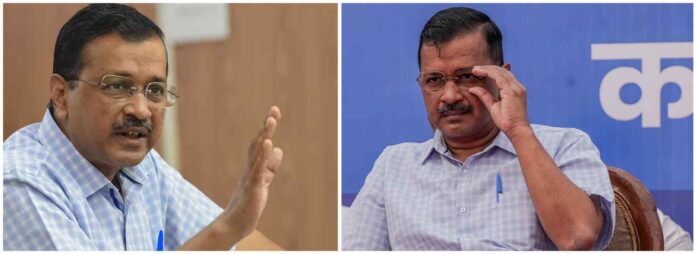In a development that has sent shockwaves through the political corridors of India, Arvind Kejriwal, the Chief Minister of Delhi, was arrested following allegations of being involved in a Rs 100 crore kickback case related to the excise policy. This arrest marks a significant moment in Indian politics, raising questions about governance, corruption, and the future of the Aam Aadmi Party (AAP) that Kejriwal leads.
The Allegations
The allegations against Arvind Kejriwal are severe and have the potential to tarnish the image of the AAP, a party that came into existence on an anti-corruption plank. According to the charges, Kejriwal was involved in a scheme that allowed him to receive kickbacks amounting to Rs 100 crore in exchange for favorable excise policies. These policies reportedly benefited certain liquor businessmen at the expense of the state’s revenue.
The Arrest and its Immediate Fallout
Kejriwal’s arrest was not without drama. The Delhi Police took him into custody following a probe into the allegations, leading to widespread media coverage and public interest. The news of his arrest led to a flurry of reactions from all corners of the political spectrum. Supporters of the AAP and Kejriwal took to the streets and social media to protest what they saw as a politically motivated action, while his opponents saw this as a vindication of their long-standing accusations of corruption against him.
Impact on Governance and the AAP
The arrest of a sitting Chief Minister on charges of corruption is unprecedented in recent Indian history and raises several questions about the impact on governance in Delhi. The AAP, under Kejriwal’s leadership, has initiated several popular welfare schemes in the areas of electricity, water, healthcare, and education. The arrest could potentially halt or slow down these initiatives, affecting the residents of Delhi who have benefited from these policies.
Moreover, the AAP faces a crucial test of leadership and resilience. With Kejriwal sidelined, the party needs to rally its base and maintain its governance momentum. The situation also serves as a litmus test for the party’s depth of leadership and its ability to deal with crises.
The Political Ramifications
The arrest has significant political ramifications beyond Delhi. It sends a message to other parties and leaders about the central government’s stance on corruption. For the Bharatiya Janata Party (BJP), which governs at the center, Kejriwal’s arrest can be seen as a strong action against corruption, reinforcing its anti-corruption narrative. However, critics argue that the move is politically motivated, intended to weaken the opposition.
The incident also sets the stage for a heated debate on the autonomy of state governments and their relationship with the central government. It raises questions about the use of state machinery for political ends and the sanctity of federal principles in India’s democracy.
Looking Forward
As the legal proceedings against Arvind Kejriwal unfold, the political and social discourse in India is poised to witness intense debate and scrutiny. The outcome of this case could redefine the contours of Indian politics, particularly in terms of how corruption charges are leveraged against political leaders.
The AAP, for its part, has a challenging road ahead. It must navigate this crisis by maintaining public support and ensuring the continuity of governance in Delhi. The party’s response to this situation and its ability to mobilize support could either solidify its position in Indian politics or lead to its decline.
Conclusion
Arvind Kejriwal’s arrest amidst allegations of kickbacks in the excise case is a watershed moment in Indian politics. It underscores the fragile nature of political integrity and the complexities of governance in a vibrant democracy like India. As the situation evolves, it will undoubtedly have lasting implications for Kejriwal, the AAP, and the broader political landscape of the country.






















